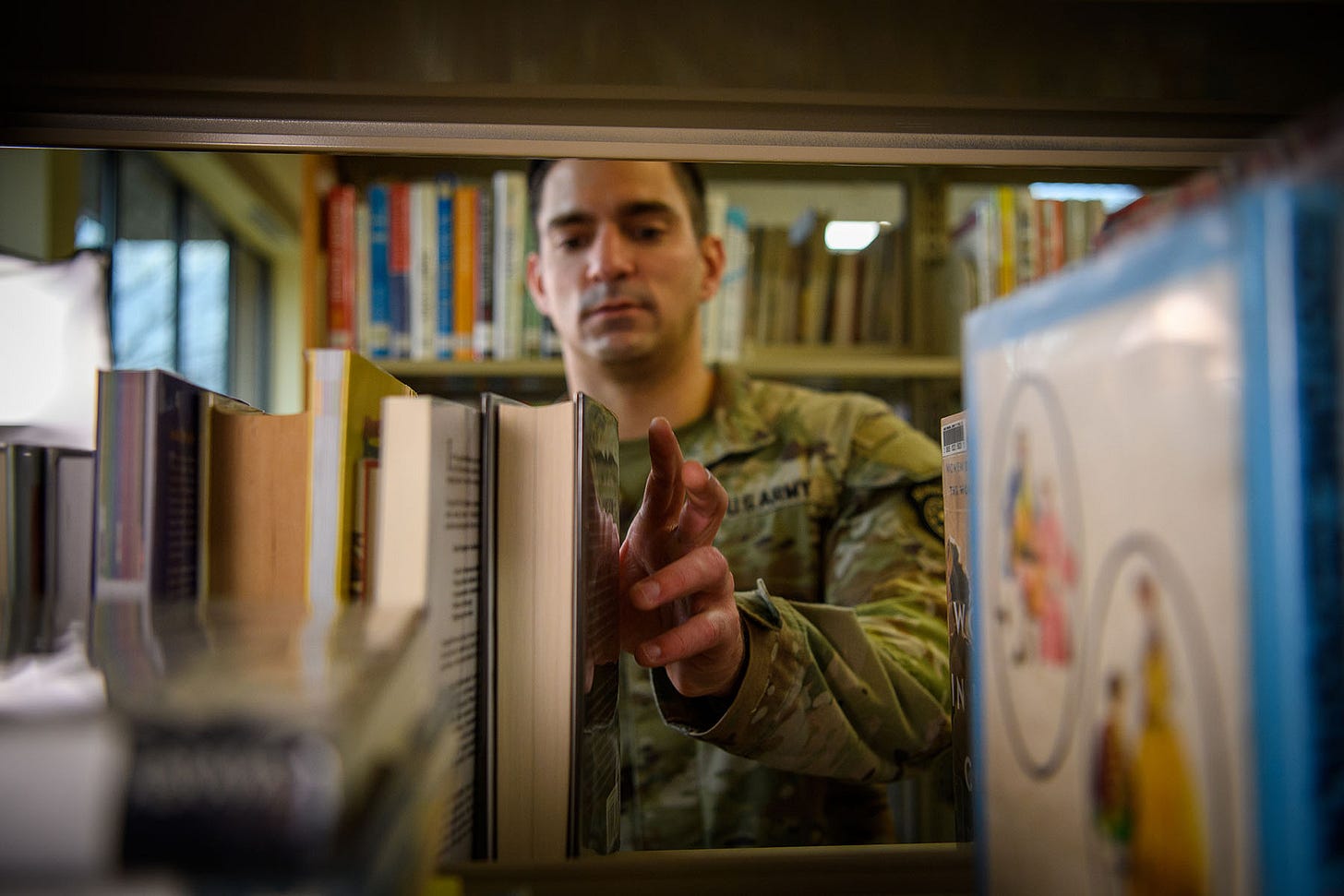An Update: The Ultima Scholars Cohort
Two months into the SMC education program, here's what we've learned
The Noncommissioned Officer Leadership Center of Excellence and Sergeants Major Academy (NCOLCoE & SGM-A) kicked off the initial Ultima Scholars cohort after the first term of Class 75.
The purpose of the Ultima Scholars is to provide additional lessons on topics ranging from framing organizations to the current operating environment. While participating in the Ultima Scholars, the students will complete a 40-page review of literature research paper on a topic of strategic interest to the U.S. Army. Following the completion of the Ultima Scholars classes, three students will be selected for strategic level assignments. These positions include working directly for the Sergeant Major of the Army, the Training and Doctrine Command (TRADOC) Command Sergeant Major, or the Commandant of the NCOLCoE & SGM-A.
The concept of the Ultima Scholars was briefed to Class 75 at the beginning of their first term at the academy, and 32 students applied for 12 slots. All applicants were academically outstanding and would have performed excellently within the Ultima Scholars, and had we had 32 slots, all would have been accepted. Each application packet was evaluated by a panel that consisted of the SGM-A’s Department Chairs and Vice-Chairs. The top 12 candidates were identified based on a combination of their undergraduate GPA, numbers of most qualified evaluations, previous Commandant’s List achievements in military schools, their term one grade point average, an endorsement by their core room instructor, and a letter of intent.
Socratic Discussions
On the first of October, I delivered the first three classes to the Ultima Scholars on the requirements of the program, how to conduct high quality academic research, and how to create data visualizations. I found that the high level of academic ability within the students contributed to the development of an excellent scholarly environment. It was as if I had my best student from every term that I taught all in the room at the same time. The conversation was so good that I barely made it through the topics I wanted to cover.
On the 22nd of October, the Ultima Scholars received their topics for their paper which came from input from the Commandant of the NCOLCoE, the Senior Enlisted Counsel, and the Sergeant Major of the Army. The topics included questions about the value of noncommissioned officer education, ways to measure leader core competencies, how to improve diversity, equity, and inclusion, how to reduce bureaucracy, and developing recommendations for leader development strategies to name a few.
Academic Rigor
As of the date I am writing this, the Ultima Scholars have completed their first 12 of 40 classes (outside of normal classroom hours), 12 reflective journals, read two complete books on reframing organizations and improvement science, read numerous articles and chapters from additional books, learned how to apply mind-maps, influence diagrams, and fishbone diagrams to complex problems, been assigned their respective research topics, and have begun the research process for their topics. While this is a significant amount of work, the scholars were chosen for their academic capabilities and have thus far balanced the Sergeants Major Academy requirements and the Ultima Scholars requirements admirably.
Once selected from the Ultima Scholars, one of the requirements is that the students maintain eligibility for the Commandant’s List. Should one of them fail an assessment, score below 90 in any department, or receive a derogatory counseling, they will be removed and not replaced. Based on what I have observed thus far, my expectation is that the Ultima Scholars will do well in the Sergeants Major Course and complete their scholars project without issue.
My tertiary hope for the Ultima Scholars is that it can become an official program within the Sergeants Major Course, and we can expand to more than 12 slots per year. My secondary hope is that we can advance the level of education that we provide at the Sergeants Major Academy. My primary hope is that we can produce highly educated noncommissioned officers of character that will drive change and champion improvement within the Army.
We are living in a complex world, our nation is challenged in every domain, and our enemies are ruthless. There is no room for apathy, or assuming that what worked yesterday will work tomorrow, or that our technology will protect our national interests, everyone must seek new and creative ideas. When considering the prospect of a near-peer conflict, the U.S. Army will need every Soldier, NCO, and Officer to bring their full mental attributes and abilities to the fight. My hope is that the Ultima Scholars can help with this.
COHORT One of the Ultima Scholars
MSG Cory Alkire (89B)
MSG Nicholas Bennett (79R)
MSG Amanda Brown (35Z)
MSG Britney Byrd (17Z)
MSG Kimberly Goode (68Z)
MSG Jonathan Miller (31Z)
MSG Nicole Moates (31Z)
MSG Timothy Paddock Chappell (19Z)
MSG Eric Pantoja-Torres (15Z)
MSG Rachel Quiroz (68Z)
MSG Matthew Rouse (14Z)
MSG Christopher Van Roo (68Z)


We’ve clearly come a long way. As we neared the end of eight weeks of Basic Training loomed so did a 3-day Labor Day weekend pass. Essentially our Drill Sergeant told us, “get caught” so we could all hit the road. Being a curious college grad and National Guard trainee, I asked “what is the actual training objective of the exercise?” Our Drill Sergeant looked at me and replied, “I can spell watermelon.” We were all duly caught and trucked to the POW compound where some trainees were interrogated, I’m told, but I only heard about that later because within 10 minutes I’d summoned up all my WW2 POW stories and blitzed the wire and was gone.